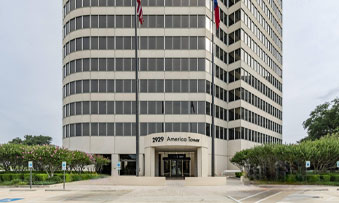Dallas, TX Car Accident Statistics (Updated)

Dallas, TX, car accident statistics reveal the significant challenges faced by drivers on the city’s bustling roads. From congested highways to busy intersections, understanding the trends behind these incidents is essential for promoting safer driving habits. These statistics not only shed light on the causes of accidents but also emphasize the importance of being prepared for the unexpected while navigating Dallas streets.
For those injured in a collision, a Dallas personal injury lawyer can provide critical guidance. Whether it’s dealing with insurance companies or pursuing compensation for medical expenses and lost wages, having experienced legal representation ensures that your rights are protected. Navigating the aftermath of a car accident can be complex, but the right legal support can help you focus on recovery while seeking the justice you deserve.
Dallas Crash Statistics
Dallas reported 31,678 car accidents in 2023, placing it third among Texas cities for total crashes. These incidents resulted in numerous injuries and 207 fatalities by December 2024. The city’s fatal crash rate of 15.77 per 100,000 residents is the highest in Texas and among the worst for U.S. cities with over one million residents.
The dangerous conditions of Loop 12 contributed to nearly 500 severe accidents over five years, marking it as Dallas’ most hazardous roadway. Efforts to address safety include adding protected pedestrian crossings and reducing speed limits in high-risk areas.
Single-vehicle run-off-the-road crashes are a significant concern, with many fatalities linked to this type of accident. Contributing factors such as speeding and distracted driving exacerbate the dangers. Pedestrian fatalities also remain a challenge, reflecting the need for improved infrastructure to protect non-motorists.
The Importance of Safety
Despite safety initiatives, the upward trend in fatal accidents underscores the importance of vigilance and continued improvements in road safety. Dallas drivers face unique risks, and proactive measures by city and state agencies are critical to reducing future accidents and saving lives. These ongoing efforts aim to make Dallas a safer place for both drivers and pedestrians alike.
Texas Car Crash Statistics
In 2023, Texas recorded 560,000 car accidents, including 15,219 serious crashes that caused 18,752 injuries. The state saw a slight decline in fatalities, with 4,283 deaths compared to 4,407 in 2022. Notably, rural areas accounted for over 52% of traffic deaths, reflecting the unique dangers of non-urban roads.
Alcohol-related crashes caused 1,090 fatalities, while distracted driving contributed to 403 deaths, a 17.25% decrease from the previous year. Tragically, Texas experienced no deathless days on its roads. These figures underscore the need for vigilance and improved road safety measures statewide.
Major Car Crash Trends in the Lone Star State
Texas experiences significant motor vehicle activity, with over 560,000 accidents reported in 2023, averaging more than 1,500 crashes daily. Speeding and distracted driving remain the leading causes of accidents, with 138,927 and 89,529 incidents, respectively. Rear-end collisions, often due to tailgating and inattention, are the most frequent type of crash.
Fatalities decreased slightly to 4,283, yet serious injuries exceeded 18,000. Rural areas, particularly on hazardous roads like Interstate 35 and 45, accounted for over half of the fatalities.
Dallas Car Accident FAQs:
Q: What City in Texas Has the Most Traffic Accidents?
A: Houston reports the highest number of traffic accidents in Texas. Its large population, high traffic volume, and extensive road network contribute to frequent collisions. Busy highways like I-45, I-10, and I-69 see significant crash rates. Houston’s economic activity and dense urban areas also increase the likelihood of accidents, making it a hotspot for traffic incidents compared to other cities in the state.
Q: How Common Are Car Accidents in Dallas?
A: Car accidents are extremely common in Dallas, with thousands reported annually. The state’s large population, vast roadways, and heavy traffic contribute to its high crash rates. Factors like distracted driving, speeding, and impaired driving make accidents a daily occurrence. Texas often ranks among the top states for traffic fatalities, highlighting the prevalence of collisions across its urban and rural areas.
Q: Can I Obtain a Police Report Following a Car Crash?
A: Yes, you can obtain a police report following a car crash in Texas, although you may have to request it directly. These reports are typically available through the local law enforcement agency that responded to the accident or through the Texas Department of Transportation’s (TxDOT) Crash Report Online Purchase System.
Police reports often include details about the accident, such as the parties involved, potential causes, and any citations issued, making them valuable for insurance claims or legal proceedings.
Q: What Is the Number One Cause of Accidents in Dallas?
A: Distracted driving is one of the leading causes of accidents in Dallas. Activities like texting, using navigation devices, or talking to passengers often divert drivers’ attention. This dangerous behavior increases the risk of collisions and is responsible for a significant portion of traffic accidents statewide. Raising awareness and enforcing laws targeting distractions are key to addressing this widespread issue.
Q: Are Car Accidents Public Record in Texas?
A: Yes, car accidents are public record in Texas. Accident reports can be obtained through the Texas Department of Transportation (TxDOT) or local law enforcement agencies. These records include details about the crash, parties involved, and any citations issued. Accessing these reports is often necessary for insurance claims or legal matters and helps clarify the circumstances surrounding an accident.
Schedule Your Car Collision Consultation Today
If you or a loved one has been injured in a car accident in Dallas, taking immediate steps to protect your rights is crucial. A skilled attorney can help you navigate the complexities of your claim, gather critical evidence, and hold the at-fault party accountable. At Merritt & Merritt, our team has over 45 years of experience advocating for accident victims across Georgia and beyond.
We offer personalized legal guidance tailored to your situation, and our attorneys are available 24/7 to provide the support you need. Time is of the essence. Delaying action may jeopardize your ability to recover compensation. Contact our office today to schedule your consultation.






